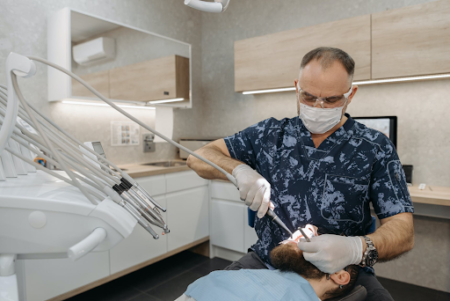26 November 2021
By Roger Jones
roger@TheCork.ie
It’s no secret that hospitals and health services are under a huge amount of pressure. With seasonal illnesses circulating and Covid-19 still very much a public health threat, experts are warning of a challenging winter ahead. With this in mind, it’s useful to know where to turn if you need help or advice in the coming days or weeks.
Image from https://pixabay.com/photos/medical-equipment-medicine-4099429/
Accident and Emergency
Accident and Emergency departments are already showing signs of strain and demand for treatment is expected to increase as we move towards winter and the festive season. This service is designed to provide urgent treatment for people who have severe injuries and illnesses and symptoms that could potentially be life-threatening. It is critical to ensure that you only call an ambulance or visit an A&E department if you need emergency assistance. Examples of conditions and injuries that emergency departments treat include heart attacks and acute chest pain, traumatic injuries caused by accidents such as falls and car crashes, stroke, breathing difficulties, anaphylactic shock, seizures and fits, loss of consciousness and severe bleeding.
GP services
If you feel unwell, you have noticed unusual or new symptoms, such as lumps, changes in your bowel habits or unexplained weight loss, you are experiencing symptoms of depression or you have concerns about your health, your GP should be your first port of call. Contact your local surgery. You may be offered an in-person appointment or your doctor will arrange a phone call or a video consultation. If your GP carries out an assessment or examination and they feel that you need further treatment or tests, they will ask you to come back or refer you to a hospital or treatment centre for investigations.
Pharmacies
Pharmacies have an important part to play in providing health advice, especially at this time of year when seasonal illnesses are prevalent. If you have a minor ailment, or you’d like advice about making lifestyle changes, such as giving up smoking, losing weight or increasing activity levels, a pharmacist can help. Pharmacies also provide services, such as blood pressure and BMI checks and they dispense medication, as well as offering advice for those buying over the counter drugs. You can visit a local pharmacy or use an online service, such as Simple Online Pharmacy to seek advice, take advantage of health clinics and find out more about treatments and therapies. A pharmacist will also be able to help if you have symptoms or you feel unwell and you don’t know whether you need to see your doctor.
Online resources
If you have general questions about health issues, or you feel unwell but you don’t need urgent treatment, it can be beneficial to utilise online resources, such as reputable health websites. You can find information about self-help techniques for dealing with a heavy cold or flu, for example, as well as accessing useful tips for being more active and improving your diet. It is essential to note that researching online should not replace going to the doctor or seeing a pharmacist if your symptoms persist or get worse, or you have symptoms that may be linked to a serious condition or injury.
Charities and helplines
Charities provide a critical service for people who may be experiencing symptoms of mental health disorders and those struggling with loneliness. The festive period can be incredibly tough for some people, especially at a time when many people are coming to terms with loss or trying to cope with the effects of the pandemic. If you feel low, you are anxious all the time, or you need to talk to somebody, you can contact your GP or make use of helplines run by charities.
Dental services
Dental services have been widely disrupted during the Covid-19 crisis. Practices closed for a period in 2020 and since they reopened, they have been working under restrictions. There are significant backlogs, which means that normal services may not be running. If you want to schedule a check-up, you may have to wait, but if you need urgent treatment, contact your regular dentist. Most clinics are prioritising emergency cases. Examples of emergency dental issues include abscesses and infections, split and broken teeth and severe dental pain.
Picture source: https://www.pexels.com/photo/dentist-checking-on-a-patient-s-teeth-6812561/
Health bodies have already suggested that the winter ahead will be a major challenge. If you need advice or help in the coming weeks, it’s beneficial to know where to turn. Accident and Emergency departments provide urgent treatment. There are numerous other services you can use if you require help for symptoms linked to minor ailments or conditions that are not life-threatening. GP services are up and running and you can also make use of pharmacies, online services and resources and charity helplines.


